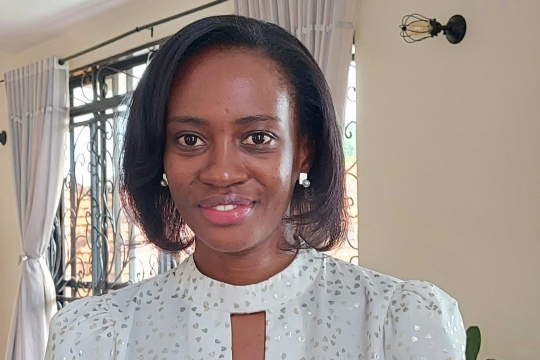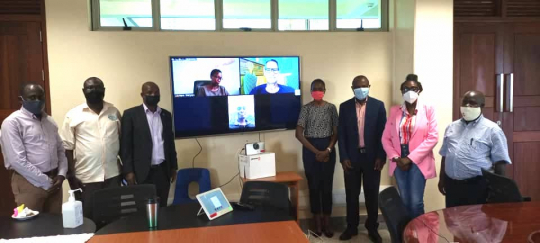The Inclusive Green Economy (IGE) program is now up and running: The participating high-level civil servants from East Africa have had their first training sessions. Meet June Nyakahuma, one of the participants, an Economist in the Macroeconomic Policy Department at the Ministry of Finance, Planning and Economic Development in Uganda!
Please tell me about your work!
My work revolves around macroeconomy, covering aspects of fiscal forecasting, debt sustainability, fiscal risk, and project analysis, among others. I’m also an assistant to the Sherpa to The Coalition of Finance Ministers for Climate Action, coordinating and implementing work across all the Helsinki principles.
What is the best part of your work?
It’s a very broad field that covers a variety of tasks from forecasting and budgeting to writing policy papers and interacting with different stakeholders.
What are your impressions of the IGE program?
It’s a very good program! The best part is that it provides a platform for us to share experiences on a regional level. It’s also very valuable to have experts explain the principles of an inclusive green economy and to learn about specific policy instruments. I have previously focused on “green” and now I see how all the aspects come together.
In this program, I also get an opportunity to speak with representatives from other agencies in Uganda, such as the Ministry of Environment and the National Planning Department, and discuss how we can work together to achieve synergies when implementing inclusive green policies.
After this program, you will be given the title IGE Fellow. What does that mean to you?
Being accredited as an IGE fellow means I can train my colleagues and build a stronger team to move the work on IGE forward in my department. I will also be able to build a strong network with peers from the region.
What will be most important for you to discuss with your peers?
We will talk about best practices in our countries; how to coordinate the work for an inclusive green economy, what challenges we have, and how to go about them. We will also talk about tools, laws and regulations, and fiscal policies. A regional network has many advantages compared to a global one since we face similar challenges, so it is easier to find solutions.
What will you work with between sessions that relates to the IGE program?
I have engaged my team in the possibility of a project, and hopefully, we can implement it after the program ends.
What do you think will be your most important take-aways from this program?
The technical aspects of inclusive green economy, environmental policy instruments, and how they can be leveraged to strengthen national systems for inclusive and sustainable economic development. The networking with peers too.
I must also say that this is really happening at the right time since we are thinking about how to move the green transition forward. I’m really thankful for this opportunity.
This knowledge, these instruments, and this collaboration between different stakeholders will surely help us make a great impact.
By: Petra Hansson
Facts about the IGE program:
The IGE program is a program for capacity development in five African countries: Ethiopia, Kenya, Rwanda, Tanzania, and Uganda. Environment for Development (EfD) and the Gothenburg Centre for Sustainable Development (GMV) at the University of Gothenburg, collaborate in this unique program. About five high-level civil servants per country, 25 people in all, participate in this first phase of the program.

